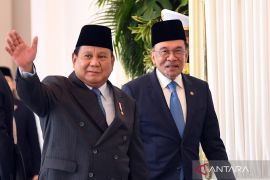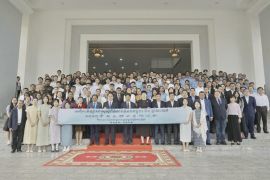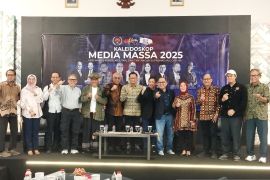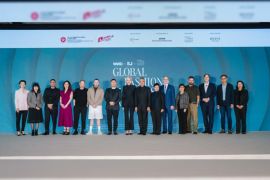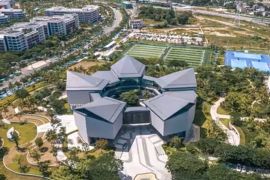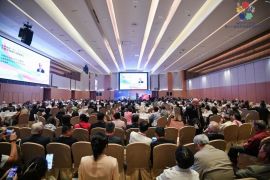The Chinese government has been blocking social media sites such as Facebook and Twitter and other websites considered sensitive from the point of view of the country`s national security.Kunming (ANTARA News) - Journalists from ASEAN member countries and China who had gathered here on Tuesday emphasized that cooperation in the media sector forms an integral part of the ASEAN-China relations in the quest to promote the One Belt One Road initiative.
"The willingness to pursue this objective must come from both sides. That is essential," Director of China International Publishing Group Digital Media Center, Chen Shi, said at a gathering of Chinese and ASEAN journalists here on Tuesday.
Fifteen ASEAN journalists, who were invited to China during as part of a China-ASEAN Media Journey program related to the 21st Century Maritime Silk Road 2016, met with around 20 local journalists in Kunming to share their view on journalism related issues in the regions. The program was organized by the China Report and ASEAN-China Center (ACC).
"We have to provide coverage to promote the relationship between the two regions. I believe the cooperation between media organizations on both sides will play an important part in promoting the One Belt One Road initiative and will benefit both ASEAN countries and China," Myanmar journalist Khamphone Syvongxay said.
Chinas exclusive policy in the social media sphere was a topic of discussion among the journalists.
The Chinese government has been blocking social media sites such as Facebook and Twitter and other websites considered sensitive from the point of view of the countrys national security.
Several Chinese journalists supported the Chinese governments policy as a measure to censor stories or content perceived to have the potential to spread rumors in the country.
"Nowadays, for the Chinese people, it is hard to tell what information is true and what is not," a local journalist commented.
However, local media in China, such as in Yunnan Province, is now trying to reach out to more audiences to provide them information and promote the region.
"We want to have more access to foreign readers and we are now focusing on audiences in the neighboring countries," a local journalist from the Yunnan Province, Eric Wang, explained.
Meanwhile, Director of Information and PR Division of ASEAN-China Center Vithit Powattanasuk said information exchange is essential to the success of the 21st Maritime Silk Road initiative proposed by the Government of China.
The Maritime Silk Road of the 21st century is expected to further unite and expand common interests between China and ASEAN countries as well as other countries situated along the route.
"We are trying to connect with each other and we need to find a better platform," Vithit underlined, adding that one of the ways to do so is through social media.
On Monday, during the Silk Road Media Cooperation Forum in Nanjing, Jiangsu Province, Secretary General of ACC Yang Xiuping stated that media plays a crucial role in facilitating cross-cultural exchange.
"I hope that both ASEAN and Chinese media will recognize your important role on this regard and build on the good work together, help shape a favorable media environment, and raise more public awareness so as to support the efforts to expand ASEAN-China relations," Yang noted.
***2***
EDITED BY INE
(A059/INE/B003)
(T.A059/A/KR-BSR/B003) 26-10-2016 00:19:00
Editor: Heru Purwanto
Copyright © ANTARA 2016
